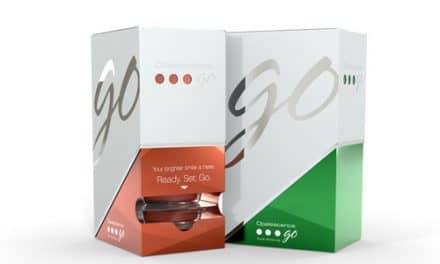by Jason Gladwell, DDS, MSD

The letter reprinted below was originally written to the Charlotte News & Observer in response to an article about the state of North Carolina’s allowing tooth-whitening kiosks to operate in malls.
Dear Editor,
I am writing in response to the Tuesday, March 18, 2008, article, “State Lets Whitening Kiosks Be.” As a local dental care provider, I would like to address what I believe are serious concerns with the whitening kiosks in our local malls. I have an extensive background in tooth whitening, including a clinical research paper published in the Journal of Esthetic and Restorative Dentistry.1 My master’s thesis was devoted to answering the questions of whitening and its relation to orthodontic treatment.2 I would hope that these past experiences would lend some credibility to my thoughts on this issue.
I have visited the local shopping malls and am always drawn to the whitening kiosks to watch what is happening. I have never walked away from the kiosks thinking that the health of the general public is in good hands. At both the Crabtree Valley Mall and the Triangle Town Center locations, I have stopped to ask very basic questions concerning the whitening process. What type of gel is used to whiten the teeth? How does the gel work? What happens if I have sensitivity? Is it safe for everyone to use? In most cases, staff was unable to answer these basic questions and demonstrated limited knowledge about the process and oral hygiene.
The fact is, not everyone is a good candidate for whitening procedures. There are certain stain types that are more easily whitened than others (some are not able to be whitened at all). There are also situations when whitening would produce a less than desirable aesthetic result. For example, a patient with anterior composite resin restorations would not be a good candidate because the tooth-colored fillings will not whiten with the rest of the adjacent natural tooth structure. This can lead to a discernable color difference between the natural tooth and the tooth-colored filling. Patients with active carious lesions should not use tooth whitening procedures until these problem areas are addressed. Patients who visit their general dentist can discuss if they are a candidate for “whitening” procedures, what whitening procedure would be best, and can feel confident that they receive the appropriate follow-up care in the event that some reaction (severe sensitivity or gingival) occurs.
I have also personally witnessed numerous health code violations at whitening kiosks. I have seen kiosk staff fail to change gloves between “patients” and even cough into a glove and fail to change it afterwards. I don’t recall ever seeing a staff member wash his or her hands. Are these kiosk operators aware of the potential public health dangers if they do not follow the strict Centers for Disease Control Guidelines?
These are all very important health concerns that the public should be aware of before making the decision to have their teeth whitened in the mall. When the news is constantly filled with headlines about public health, the outbreak of a “super-infection,” the worst flu season in years, or a hepatitis outbreak, the public deserves to be informed and should be skeptical of a mall kiosk offering discount dental procedures.

The article from March 18 also notes that in-office teeth whitening costs can be $500 to $600. Not true. There is no argument that teeth whitening procedures may cost more in a dental office, but patients are not paying just to have someone whiten their teeth. They are expecting the best health care and the best advice available. Patients expect the kind of attention that only years of training can provide. Comparing the costs of a mall kiosk to a dental office is an insult to the dental profession. My thoughts are rooted in a genuine concern for the health of my patients and their families, and I find it extremely disappointing that the same NC Dental Board that granted me a license to practice in North Carolina would allow this kind of service to continue to operate on the basis of technicalities.
Sincerely,
Jason Gladwell, DDS, MSD
Gladwell Orthodontics
Jason Gladwell, DDS, MSD, has a private practice in Wake Forest, NC. He is a diplomate of the American Board of Orthodontics, a member of the American Association of Orthodontists, as well as a member of the regional and state orthodontic associations. He can be reached at
References
- Gladwell J, Simmons D, Wright JT. Remineralization potential of a fluoridated carbamide peroxide whitening gel. J Esthet Restor Dent. 2006;18(4):206–12; discussion 212–3.
- Gladwell J. Concurrent whitening and orthodontic treatment. A thesis submitted in partial fulfillment of the requirements for the degree of Master of Science in Dentistry at Virginia Commonwealth University. Virginia Commonwealth University, 2007.










